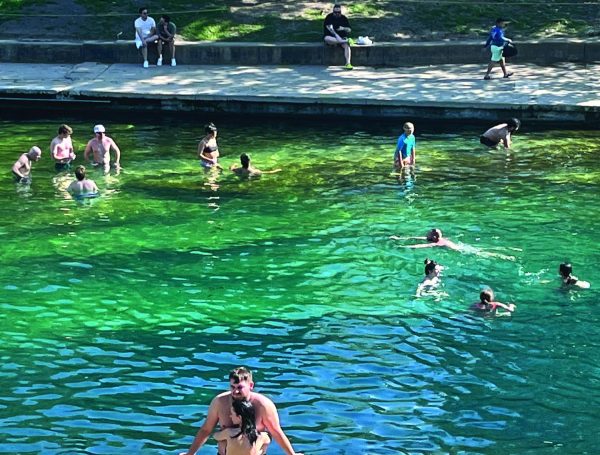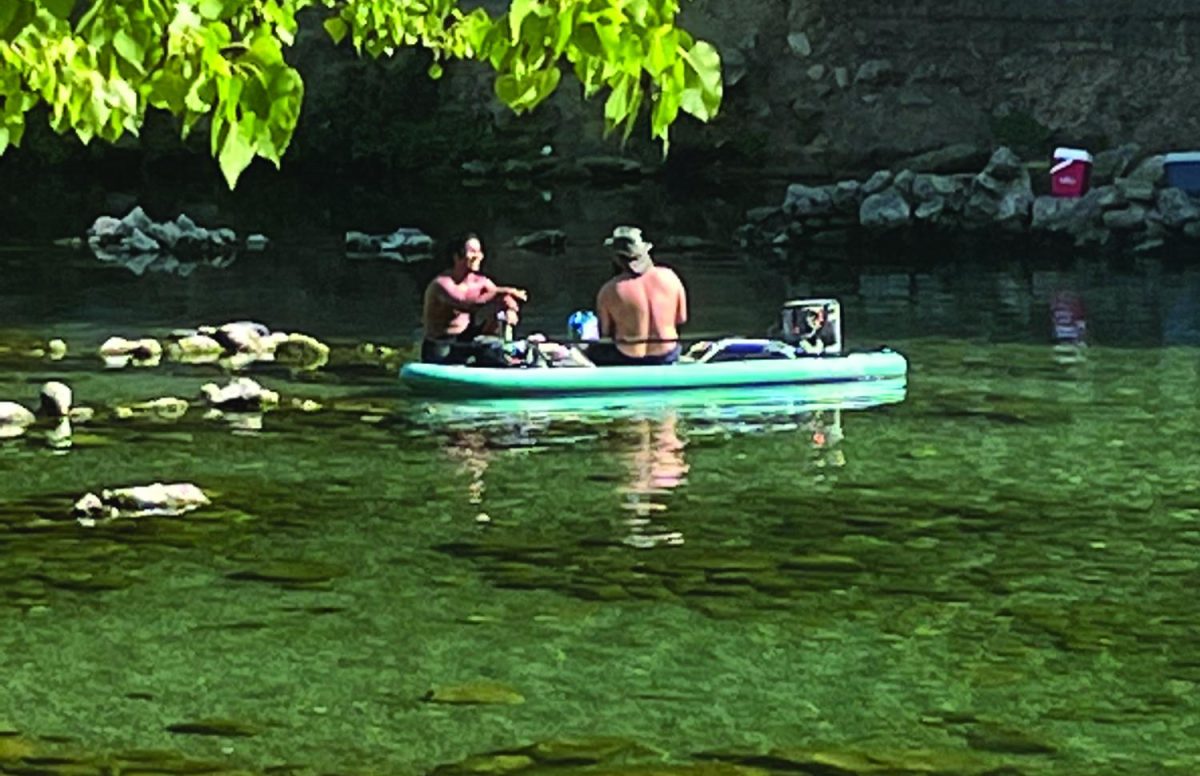Dubbed the “crown jewel” of Austin’s parks by Austin Parks and Recreation, more than a million people visit Zilker park every year. Opened in 1917, Zilker Park covers 350 acres of land in Central Austin. But recently, Zilker hasn’t been so perfect. Crowds from tourism and events like ACL have led to damaged wildlife.
Jonathan Ogren is the founder of Siglo Group, an environmental consulting firm that conducted an inventory of Zilker Park’s natural resources for the city. In their inventory, they found that the sheer amounts of foot-traffic and activity at Zilker was harming the wildlife.
“There’s a number of areas that are degraded and becoming more degraded in the park,” Ogren said. “So that’s some of the biggest issues. And so there’s a lot of missed opportunities for the ecology of the site and for us to enjoy it. It really is getting loved to death. And the best example of that is from the pool itself downstream. But you can see those examples all over the park.”
The degraded areas and the affects on the wildlife grew to be a problem the city could not ignore. In 2020, the Austin Parks and Recreation Department took action by requesting a vision plan.
“When the city of Austin wants to improve one of its parks, it requests a vision plan,” Ogren said. “[Zilker Park] has a lot of pressure and that pressure is degrading it. It’s in need of a vision plan.”
A vision plan describes the appropriate actions the city can take to refurbish a park. The first step of the plan was the Siglo Group’s inventory.
“The city said, ‘We need an assessment of the site so that way, when the vision plan team comes on board, they know what they can do, they already know things about the site,” Ogren said. “And so we worked with Barton Springs Conservancy, as well as the city of Austin to create what’s called the Zilker Park natural resource inventory and sustainable management guidelines. As a part of that process, we talked to probably 40 different people about Zilker Park, what was important about it, and how it was maintained.”

Patricia Bobeck, Ph.D., is a professional geologist in Austin who often visits Zilker Park. She is opposed to both the plan and ACL’s presence in Zilker Park because the festival prevents Austin residents from using the park as they normally do, to have picnics, play sand volleyball and more.
“They came up with a plan to build three parking garages, surface and underground in the park, and to build a 5000-person amphitheater on the Great Lawn made out of concrete,” Bobeck said. “Also a land bridge over Barton Springs Road, a welcome center and a few other things.So again, taking away some of the functional components of the park to ACL.”
The proposed changes quickly made the plan a controversial topic. Anger fomented among community members who believed that the planned large-scale construction was meant for the benefit of Live Nation, the corporation that runs ACL.
“We do not want a 5000-person amphitheater that takes up the Great Lawn with concrete that would really be used for only one purpose, and that’s most likely ACL and Live Nation,” Bobeck said.
ACL hosts about 450,000 visitors a year, and that number is steadily increasing. These structures would facilitate mass gatherings of people by giving them space to park and watch performances.
“Live Nation is a very rich, multinational corporation,” Bobeck said. “They want to have ACL here. But there are enough of us to who don’t want it. And I totally believe that a petition to get them to move out would pass and that’s what I’m talking with some friends about doing. Because basically, it’s our park. And we’re not going to let them take it away from us.”
This fact has been key in the argument against the plan, which David Weinberg, a member of the Zilker Park Political Action Committee. He uses Zilker’s expanse of fields to play ultimate frisbee and opposes the plan.
“There are a lot of things I found to be very problematic in the plan,” Weinberg said. “I think it was being driven by commercial interests. One of the biggest talking points to try to sell the plan was talking about how the park was being loved to death … that is on some level incorrect or disingenuous.”
Environmental issues are also driving both sides of the argument. The plan was originally proposed to manage the crowds, which were said to be overwhelming the environment. Dirt paths near the water were eroding vegetation since people didn’t have a faster way of getting there.
“Parking garages in the park, I am quite sure, would disrupt the waterflow,” Bobeck said. “And if you start excavating to build these half underground parking garages, which are huge, you’re going to vibrate and cause all kinds of disturbances to this rock, [karst], which is a special kind of rock.”
On Aug. 7, Mayor Kirk Watson announced that the Zilker Vision Plan had been halted for an indefinite period. Mayor Pro Tem Paige Ellis and two other council members also released a joint statement explaining that they did not support the plan because it had divided the community.






